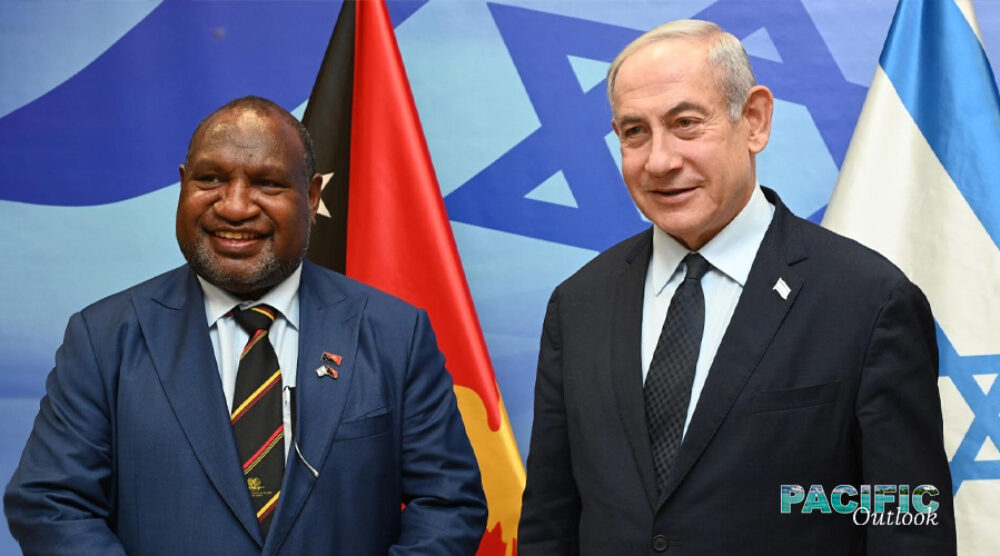Papua New Guinea (PNG) has “aroused the ire”—in the words of its Opposition Leader—of both Hamas and the Palestinian Authority by opening its Israeli Embassy in Jerusalem earlier this month.
PNG’s move has been labelled a “reprehensible decision,” according to a Hamas spokesperson, while other Palestinian sources have labelled it an “aggression against the Palestinian people and their rights,” and that it causes “great harm” to the two-state solution.
The reactions may seem vociferous to receive—and even bizarre—for a relatively small nation like PNG, which maintains extremely light diplomatic footprints on foreign soil. Indeed, PNG’s bilateral trade with Israel is $1 million per annum—hardly earth-shattering in global terms. Its embassy will consist of only 200 square metres of Jerusalem high-rise space, and will notably be funded by Israel—a departure from standard practice.
But PNG is one of only five nations to have placed their diplomatic representation in Jerusalem and not Tel Aviv. This explains, in part, sharp and exclusive condemnation from the Palestinian leadership on the international stage.
PNG’s decision raises two questions. The first is functional—what relationship actually exists between both nations? And second, where does PNG’s decision—or perhaps more specifically Prime Minister James Marape’s – ‘fit’ in terms of its broader web of alliances and strategy?
I can recall, as a junior attaché to PNG’s 2011 Commonwealth Heads of Government (CHOGM) delegation, supporting a very brief bilateral with Israeli representatives in the margins. Israel’s assistance, from memory, was offered where it matters most – in PNG’s health sector and through in-kind, small-scale on ground medical equipment and expertise.
Both nations established diplomatic relations in 1978. As noted, bilateral trade is slim.
But Marape—and indeed Israel’s Prime Minister Benjamin Netanyahu—share more optimistic and deeper expectations for the relationship. Israel’s technical innovations in agriculture, finance, water and health enabled seismic living standard and economic improvements for its people. Marape sees this. And he wants Israel to share.
The other element driving the relationship is faith. “For us to call ourselves Christian,” Marape said, “paying respect to God will not be complete without recognising that Jerusalem is the universal capital of the people and the nation of Israel.” Since the announcement, news reports have played back Marape’s 2019 comments—upon becoming Prime Minister—for his aspiration to make PNG “the richest black Christian nation on earth.”
Adding faith to the decision mix is more notable than problematic as it pries open a rare instance in PNG of domestic expectations motivating foreign policy. As these PNG scholars observe, “foreign policy rarely features in PNG’s political debates,” while “its foreign relations are not informed by any rigorous process of foreign policy engagement with domestic stakeholders and interest groups.” Yet faith groups appear to have strongly supported and lobbied Marape and the PNG Government for this decision for some time.
While domestic or voter interest in foreign policy is unlikely to spike in the years to come, this does highlight the second question above—where does Marape and PNG want to go with foreign policy?
At the time writing, PNG is developing a foreign policy white paper. Its first was created in 1981 by then- Foreign Minister Noel Levi and themed “active and selective engagement.” The delivery of its successor will be welcomed, and ideally lend coherence to the long list of enhanced relationships that PNG has made over the past eighteen months, especially with the United States, France, Britain and India, as well as future growth in PNG-China relations.
One will expect to see a continuation of this—PNG wants to be “friends to all and enemies to none”—while also ‘looking north’, which was a key emphasis of the 1980s Wingti Governments and catalysed over the past decade under the Prime Ministership of Peter O’Neill. The resource sector will also be heavily cited.
Ultimately, Marape has got runs on the board with his foreign policy. Domestically, he will also need to create tangible results to elevate himself as ‘Pacific power broker’ and not a ‘PM in peril’—as one recent analysis observed.
The Jerusalem move, in addition to a firmer articulation of priorities, will play to the former. This will not just be important for Marape but for PNG as well.
Sean Jacobs is a Papua New Guinean-born Brisbane-based writer, government relations and public policy specialist.








